Trading Day: ASX falls with Kogan king-hit, iron ore miners down
Australian stocks closed down with Kogan.com sinking and iron ore miners pummelled.
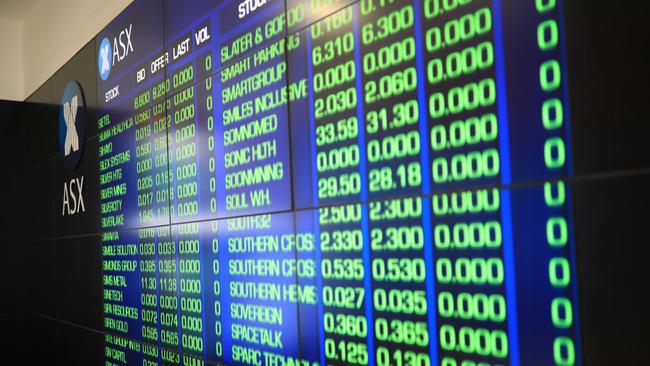
- NAB to acquire 86 400
- Lynas reports revenue record
- BlueScope beats guidance
- Naked Brand sells $US50m in fresh shares
That’s all from the Trading Day blog for Friday, January 29. Australian stocks closed lower with Kogan.com sinking and iron ore miners being pummelled. On Wall Street, the frenzy surrounding stocks including GameStop and AMC showed signs of abating, although some investors complained of restrictions in buying GameStop shares. The Dow and S&P 500 both gained 1.0 per cent, while the Nasdaq added 0.5 per cent.
4.33pm: ASX ends - 0.6% as US futures dive
Australia’s sharemarket fell for a third day running as US futures dived.
After falling 1.9pc on Thursday as Wall Street plunged amid talk of asset liquidation by hedge funds after the Reddit-driven squeeze on short positions, the S&P/ASX 200 index rose 1.2pc to 6730.2 in early trading following a bounce on Wall Street.
But the local bourse fell steadily from there, hitting a fresh 3-week low of 6585.3 in late trading before closing down 0.6pc at 6607.4 as US stock index futures fell more than 1pc.
The downturn in US futures came amid fear of more pressure on hedge funds after favoured short bets surged after brokers re-allowed buying, with GameStop up 61pc afterhours.
The S&P/ASX 200 basically held key support from Dec/Jan lows around 6587, but is at risk of forming a Head & Shoulders top pattern.
Iron ore miners plunged after the spot price fell about 6pc after China said it will lower steel production this year.
BHP lost 1.6pc, Rio Tinto fell 3pc and Fortescue Metals dived 4.1pc.
Banks and Tech favourites also lost ground with CBA down 1.9pc and Afterpay off 1.4pc.
Nick Evans 3.34pm: BlueScope up after earnings upgrade
BlueScope Steel shares jumped on Friday as the company delivered its second earnings upgrade in two months, flagging its best Australia steel sales in a decade as construction demand takes off.
BlueScope now expects to book a half year profit, before interest and tax of $530m – $55m ahead of updated forecasts provided in November, and almost $200m ahead of the $340m it tipped in October.
The company’s total underlying EBIT in the 2019-20 financial year was only $564m, as earnings crashed amid the coronavirus crisis.
BlueScope boss Mark Vassella said all of the company’s operating segments performed well across the half, with strong volumes and better margins in its Australian steel making business, as well as in the US and Asia.
“Domestic construction and distribution segment demand has been strong, particularly for coated and painted products – leading to the strongest domestic mill sales volumes in a decade, at about 1,175,000 tonnes,” he said.
Lockdowns and travel restrictions helped fuel a renovation mini-boom in the second half of 2020, with Suncorp Bank lending data from September suggesting a 20 per cent rise in borrowing for home renovations as families put discretionary income to use around the house rather than on travel.
3.26pm: ASX -0.9% after 2% reversal
A vicious reversal of intraday strength in Australian shares continues amid similar moves in US futures.
The S&P/ASX 200 fell 0.9pc to a fresh 3-week low of 6592.8 and is fast approaching key chart support at 6587.5 after rising 1.2pc to 6730.2 in early trading.
The 2pc intraday reversal of strength is highly unusual, particularly considering it’s a Friday and comes after the index fell 1.9pc on Thursday.
It comes amid a similarly big intraday downswing in US futures. S&P 500 futures are currently down 1.2pc. Nasdaq futures are down 1.5pc.
The sustained slump in iron ore miners in response to faltering iron ore miners this week is part of the story.
The slump in iron ore miners which started on Wednesday has since been validated by China’s pledge to cut steel production.
But even the banks and tech stocks are getting hammered now with CBA down 1.6pc and Afterpay down 1pc.
With US futures diving today as heavily shorted stocks rebound after retail brokers allowed buying to restart, it looks suspiciously like there’s renewed asset liquidation from hedge funds facing margin calls.
2.34pm: Iron ore miners pummelled as ASX goes red
Australian iron ore miners are getting pummelled again amid a concerning intraday downturn in the S&P/ASX 200 as US futures fall.
The S&P/ASX 200 fell 0.2pc to an intraday low of 6639 after surging 1.2pc to an intraday high of 6730.2 in early trading.
BHP fell 1.7pc, Rio Tinto fell 2.9pc and Fortescue fell 3.4pc after intraday gains.
Investors are taking profit on iron ore miners after China said it will lower steel output this year to curb pollution.
Elise Shaw 2.16pm: Covid winners and losers: CommSec
CommSec chief economist Craig James notes that during the pandemic, Aussies have been reluctant to travel on public transport. As a result, used cars have been in demand and prices are up 35.2 per cent on the year – the biggest rise in 21 years. Rental cars have similarly been in demand, lifting more than 25 per cent in the December quarter to be up over 32 per cent on the year.
“Rental car companies can be counted as a Covid-19 ‘winner’ – that is, those operators that do have cars available for hire.
“It’s a different story for owners of offices and other commercial space. People have been working from home, reducing demand on office space. Office rents fell 2.3 per cent in the December quarter and were down over 5 per cent on the year – the biggest annual decline in a decade,” he says.
The only lending that is picking up in a notable sense at present is owner occupier home loans – annual growth is approaching 2-year highs. With interest rates super-low and the job market recovering, home lending will lift further over 2021, forecasts James.
“There is no shortage of currency (cash) circulating around the economy. The amount of currency in the economy has lifted 18.4 per cent over the past year, only modestly lower the 19 per cent annual growth recorded on October (the fastest rate in 45 years).”
Ben Wilmot 1.22pm: 360 Capital swoops on Irongate stake
The listed 360 Capital REIT has kicked off the year by snapping up a 9.18 per cent strategic investment in listed office and industrial landlord Irongate Group.
The trust, part of Tony Pitt’s 360 Capital empire, outlaid about $78.6m for the interest in the REIT that has approximately $1.1bn on its balance sheet and a third-party funds management platform.
Irongate was recently spun out of Investec Bank and is run by well-regarded property executive Graeme Katz. The fund is well positioned, as it holds mainly suburban office blocks and industrial parks, which have held up during the coronavirus crisis.
360 Capital REIT has separately agreed terms to become a major equity partner in an unlisted real estate funds management platform.
After making the deals the fund will have deployed about $135m into strategic equity holdings in real estate funds management platforms with gross assets of approximately $4bn.
Based on the recurring nature of the income from these investments, 360 Capital REIT provided distribution guidance of 6c per share for fiscal 2021.
1.15pm: Pentanet surges 300pc on debut
Perth-based internet provider Pentanet has soared 300 per cent in a stunning ASX debut on Friday, with shares trading at 74c each on opening, compared to a 25c offer price.
Pentanet raised $22.5m from its IPO, selling 89.84m shares. Pentanet delivers high-bandwidth internet services with an emphasis on local service and support and excellent customer experience.
The company grew its subscribers by 218 per cent in the last 12 months and have seen these growth rates continue in the last three months. At 1.05pm (AEDT) shares in Pentanet were trading at 65c each.
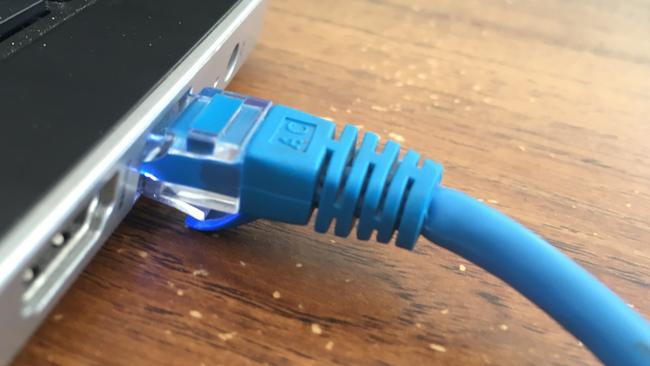
1.10pm: ASX bounce fades; US futures tumble
A bounce in Australian shares has faded rapidly as US futures tumble.
The S&P/ASX 200 was up 0.5pc at an intraday low of 6682 after rising as much as 1.2pc to an intraday high of 6730.2.
It comes as S&P 500 futures tumble 0.6pc and NASDAQ futures fall 0.7pc after early gains.
Similarly in China, the CSI 300 has erased an early gain of 1pc.
Could this be due to the prospect of further asset liquidation by struggling hedge funds?
Favoured US short bets have soared in afterhours trading after some trading was reallowed.
Lachlan Moffet Gray 12.26pm: ASX remains stronger at noon
Australia’s share market remained firmly higher at midday following sharp rises on Wall Street, to be up 0.7 per cent.
The S&P/ASX 200 had opened 1.1pc higher but held much of its early gains, with health care, industrials and technology indexes leading the charge, while the energy and finances indexes fell.
The best performing company as of midday was Service Stream, up 8.7 per cent after it confirmed it had signed a seven-year contract with Telstra.
Domain Holdings was the second best performing share after the company’s own index reported the median cost of a detached house in Australia hit a new high. It rose 8.4 per cent.
BlueScope was up 6.4 per cent after saying it would exceed guidance for underlying earnings of $475m, estimating earnings would come in at $530m.
Kogan was the worst performing company of the morning, falling 5.4 per cent and seeing a large sell-off of its shares despite flagging a record half-year report.
Fortescue Metals was down 2.2 per cent as the iron ore price slid by more than six per cent overnight, following reports that China would cut back steel production.
GME Resources limited, which shares the same ASX code as GameStop’s NYSE code, continued to rise after lifting yesterday, up around 52 per cent.
CSL was up more than two per cent despite the Therapeutic Goods Administration saying it is “carefully considering” data concerning the AstraZeneca vaccine’s efficacy in the elderly amid the German vaccine committee’s recommendation that the jab not be given to people aged over 65
Richard Gluyas 12.14: Shipton to return as ASIC chair
James Shipton will make an extraordinary return to ASIC as chairman after settlement of a long-running row over relocation expenses, which was flagged to Josh Frydenberg last October by the Auditor-General.
The Treasurer will announce on Friday that Mr Shipton, who stepped aside pending the outcome of an independent investigation, will return to the Australian Securities & Investments Commission until a successor is found.
The search for a new chairman is expected to take several months.
Mr Shipton has been in a legal limbo since October, awaiting Mr Frydenberg’s next move after Dr Thom delivered her report - as scheduled - by the end of 2020.
11.59am: GM sets 2035 target to phase out petrol, diesel vehicles
General Motors Co. has set a 2035 target date for phasing out gasoline- and diesel-powered vehicles from its showrooms globally, among the first major auto makers to put a timeline on transitioning to a fully electric lineup.
GM’s goal, disclosed in a social-media post from chief executive Mary Barra, would mark a striking transition from its current business model. Vehicles that run on fossil fuels and emit pollution account for roughly 98 per cent of GM’s sales today and all of its profit. The large pickup trucks and sport-utility vehicles that are the company’s biggest money makers are also among its least fuel-efficient vehicles.
The nation’s largest auto maker by sales called the 2035 date to eliminate all tailpipe pollution an aspiration. Even so, many governments around the world, from California to Japan and the U.K., have pledged to ban gas- and diesel-powered cars by then.
GM previously had said it expects its own portfolio and the broader car market to go all-electric eventually, but company executives hadn’t discussed a time frame.
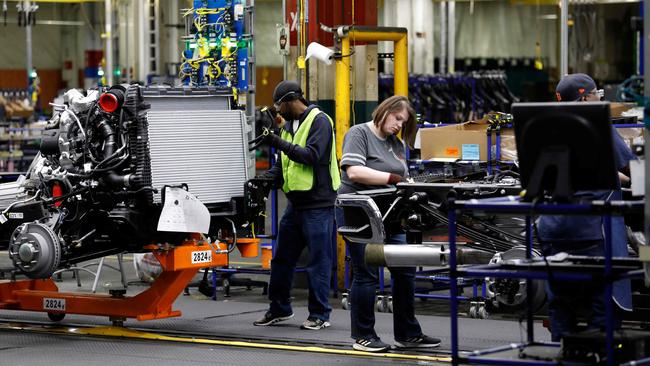
Dow Jones
Ben Wilmot 11.37am: Freedom Foods recap backed by Perich family
The embattled Freedom Foods Group has announced a $200m recapitalisation supported by majority shareholder, the billionaire Perich family, via its Arrowvest vehicle.
The move for a recapitalisation of the business via an issue of secured convertible note comes after talks with hedge fund Oaktree Capital Management ended.
The deal with Arrowvest has the non-binding indicative in principle support of the company’s senior lenders NAB and HSBC, and could help put the company re-list on the ASX.
Freedom Foods had been in the midst of a $280m recapitalisation it was negotiating with US firm Oaktree. Major shareholder, the Perich family, was also looking to rescue the business and inject new capital.
The company last year shocked investors with a near $600m hole in its accounts and is also facing a shareholder class action.
Freedom Foods will seek to change its name as it distances itself from a recent trading and financial mess that has seen its chief executive and chief financial officer quit in quick succession after hundreds of millions of dollars of impairments drenched the accounts in red ink.
Bridget Carter 10.50am: JPMorgan bankers to join Barrenjoey
High profile investment bankers from JPMorgan, Jabe Jerram and Dyson Bowditch, are leaving the US-based bank to join Barrenjoey Capital Partners.
Mr Jerram, currently the Australian co-head of investment banking, and Mr Bowditch, who is JPMorgan’s Australian head of equity capital markets, will become co-heads of equity capital markets at Barrenjoey and are due to start around May.
Mr Jerram joined JPMorgan as its Australian head of ECM in 2016 from Goldman Sachs, where he was head of ECM Syndicate.
He was named the Australian co-head of ECM in January last year.
Mr Bowditch was hired from the Goldman Sachs ECM team in 2017 to work at JPMorgan as its head of syndication in Australia.
The pair are the latest high profile investment bankers to be poached by the investment banking start-up Barrenjoey, which was launched by top UBS operatives last year, including Guy Fowler.
Late last year, Barrenjoey hired JPMorgan’s Australian head of real estate banking Rob Stanton.
It has poached Australia’s most dominant block trader, George Kanaan from UBS, along with its Australian head of infrastructure banking Jarrod Key and his team members, along with telecommunications and media banker Peter Nelson.
10.48am: Mistaken identity: share halt for GME
The Australian company that has been mistakenly traded because it shares the same ticker at hedge fund plaything GameStop has entered into a trading halt on the ASX.
“Trading in the securities of the entity will be temporarily paused pending a further announcement,” GME Resources said in a statement.
Managing director Jamie Sullivan told The Australian that ASX had been in contact about the company’s sudden surge in volume this week, but had been understanding about the situation.
“It’s fortuitous, perhaps a few more people will know a bit more about GME Resources now,’’ he said.
10.30am: ASX rises 1.1pc, led by tech sector
Australia’s sharemarket roared back to life in early trading after strong offshore gains and an early rise in US futures.
The S&P/ASX 200 rose 1.1pc to 6722.3 after falling 1.9pc on Thursday. S&P 500 futures rose 0.2pc.
The Technology sector lead gains and the Industrials, Communications, Consumer Discretionary and Health Care sectors also outperforming.
Afterpay, Xero rose and Transurban rose about 3pc, Qantas rose 4pc after on VIC/NSW border reopening plans, CSL gained 1.4pc, Service Stream rose 6.5pc on a Telstra contract, BlueScope jumped 6.9pc on preliminary earnings data and OZ Minerals rose 4pc on earnings guidance.
AMP rose 2pc after the AFR revived talk of Ares working with Macquarie on a deal, and Star Entertainment rose 2pc after The Australian said investment banks were running the numbers on a potential tied up with Crown.
Lachlan Moffet Gray 10.20am: Kogan.com flags 140pc earnings rise
Online retailer Kogan is flagging a record result for the first half of the financial year, with seven of the site’s 10 biggest trading days occurring around the Black Friday weekend.
The company did not provide exact figures but said in the first half gross sales grew by more than 96 per cent while gross profit was up by more than 120 per cent.
EBITDA is forecast to grow by more than 140 per cent while cash at the end of the period was $78.9m, with $1.4m of the group’s debt facility drawn with the newly-acquired NZ retailer Mighty Ape.
The Black Friday trading week saw sales in excess of $50m, the company said, with 470,000 items sold to 253,000 customers.

Lachlan Moffet Gray 10.00am: ResMed lifts profit 12pc
Digital health and medical equipment company ResMed lifted its operating profit by 12 per cent in the second quarter of the financial year, with revenue up by nine per cent.
The company also announced a quarterly dividend of US$0.39 ($0.51) per share.
Revenue for the period was US$800m ($1.04bn) with a gross profit of US$462.48m ($602.49m.)
Net income was $US179.5m ($233.8m).
ResMed CEO Mick Farrell said the result was driven by a strong performance of the core sleep apnea and asthma equipment sectors and expanded usage of digital out of hospital healthcare solutions.
“In our core markets of sleep apnea, COPD, and asthma, we are seeing continued sequential improvement in new patient volume and ongoing adoption of our mask and accessories resupply programs,” he said.
“We have seen great adoption of digital health and an increase in the importance of out-of-hospital healthcare these last 12 months, and that will only expand throughout 2021 as vaccines become more widely available, and our communities open up worldwide.”
9.44am: ASX set to jump, but eye on iron ore falls
Australia’s share market is expected to rise sharply, based on offshore leads, notwithstanding lingering jitters about Wall Street and a sharp fall in iron ore prices.
Overnight futures relative to fair value suggest the S&P/ASX 200 will open up 1pc at 6718 and BHP ADR’s equivalent close at $45.10 is a 1.9pc premium to BHP’s Sydney close.
After bouncing off Dec/Jan lows in the high 6500’s on Thursday, the index could potentially retest the 11-month high of 6832.6 it reached on Monday, with no significant sell signals just yet.
But traders will watch the Dec high at 6765, as the “right shoulder” of a head & shoulders top may form at that level after the S&P 500 shied off equivalent resistance from its early January peak at 3826.7.
The S&P 500 rose as much as 2.1pc to 3830 intraday as the social-media led short squeeze on key stocks that forced hedge funds to liquidate some assets this week was halted by trading curbs on those stocks by brokerages.
But the S&P 500 pared more than half its intraday rise to close up 1pc at 3787.4.
GameStop shares bounced 37pc in afterhours trading after Robinhood allowed limited buying of some restricted securities including GameStop.
Also CNBC reports that Robinhood has tapped into several hundred million dollars of its credit lines through banks including JPM and GS after recent volatility.
The other big concern overnight was the 6pc fall in spot iron ore after China planned to lower steel output in 2021 to control pollution.
9.30am: Worley partners with Avantium on plastics project
Worley said it has entered a strategic partnership with Avantium to develop a renewable plastic feedstock plant in The Netherlands.
The facility will make plant-based furandicarboxylic acid--a key ingredient for chemicals and plastics such as Polyethylene furanoate, a fully recyclable plastic--and will be “the commercial proof for future larger-scale projects,” Worley said.
The Australian-listed engineering company said it will take a stake in Avantium in return for a 10 million euro ($US12 million) equity investment.
Dow Jones Newswires
Nick Evans 9.26am: OZ Minerals approves Carapateena expansion
OZ Minerals has ticked off on a $1.75bn expansion of its newly opened Carapateena mine, saying it will push ahead with the construction of a block cave operation that will eventually more than double the mine’s production capacity.
The South Australian copper miner pulled the trigger on the block cave expansion on Friday, saying its success in ramping up production at Carapateena early had given it the confidence to push ahead with the next stage of the mine’s development.
Carapateena is set to produce about 70,000 tonnes of copper a year over the next four years, along with 85,000 ounces of gold. The block cave development, when it is completed, is tipped to lift production to 110,000 to 120,000 tonnes of copper and 110,000 to 120,000 ounces of gold.
OZ released its December quarter production report on Friday, saying it mines produced 20,231 tonnes of copper in the period taking its total to 97,620 tonnes for the full year - well within its guidance range of 88,000 to 105,000 tonnes.
Its copper was produced at an average all-in-sustaining cost of US49.8c a pound.
The company booked revenue of $1.3bn for 2020, closing the year in a net cash position of $32m.
OZ Minerals boss Andrew Cole said the company was well positioned to take advantage of the growing demand for copper over the coming decade, with the company also looking to expand the capacity of its Prominent Hill operations.
8.50am: Origin says APLNG sets new production record
Origin Energy reported record production from the Australia Pacific LNG project in Queensland state in its fiscal second quarter, helping the company to take advantage of the recent surge in spot prices of liquefied natural gas.
Origin said APLNG’s output rose by 6pc in the three months through December compared to its fiscal first quarter, reflecting higher demand from LNG buyers and the completion of planned maintenance.
“Strong gas production at Australia Pacific LNG for the quarter eclipsed the previous record, which combined with higher prices on short term domestic and LNG spot sales offset the lagged impact of lower oil prices under long term LNG contracts,” said Chief Executive Frank Calabria.
Origin said the average realised gas price in the second quarter was $6.17 per gigajoule, comprising an average LNG price of $US5.20/mmbtu and an average domestic price of $A4.40/GJ.
“In Energy Markets, electricity demand in the retail segment has increased 1pc for the year to date, as residential customers spent more time at home due to Covid-19,” Mr. Calabria said. “However, we continue to see the impact of the pandemic in the SME and large business segments, particularly in Victoria, with mild summer conditions due to the La Niña weather pattern also impacting demand in the quarter.”
Dow Jones Newswires
Lachlan Moffet Gray 8.48am: NAB to acquire neobank 86 400
NAB will acquire neobank 86 400 for approximately $220m and integrate it into its UBank online banking platform.
As of January 15, 86 400 had more than 85,000 customers, $375 million of deposits, $270 million in approved residential mortgages and 2,500 accredited brokers.
NAB chief operating officer Les Matheson said the acquisition was consistent with NAB’s long-term strategy.
“Bringing together UBank and 86 400 is consistent with NAB’s long-term strategy and growth plans and will enable us to develop a leading digital bank that can attract and retain customers at scale and pace,”
“The combined business will deliver accelerated innovation and an enhanced customer experience to create a stronger and more competitive banking alternative for Australian customers.”
NAB will increase its 18.6 per cent stake in the neobank to 100 per cent through a scheme of arrangement which will be scrutinised by the ACCC, APRA and the treasurer Josh Frydenberg.
The board of 86 400 has unanimously recommended that shareholders vote in favour of the scheme.
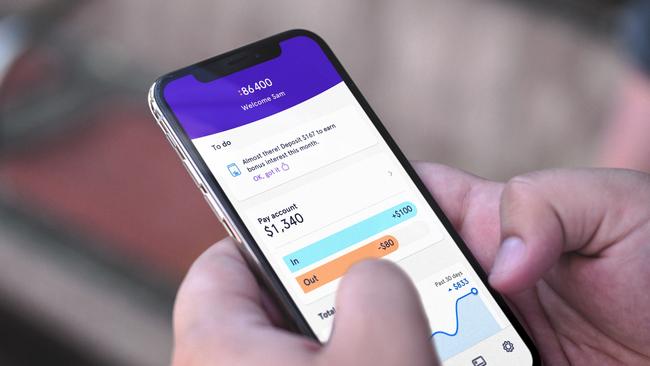
8.45am: PointsBet customers, turnover jump
Online sports betting app PointsBet has doubled its active customer base and increased its turnover by more than 300 per cent as it expands operations in the US.
In its quarterly trading update, the company said in the three months to December 31 turnover was $1.198bn, up 303 per cent on the previous comparable period.
Active clients were up 107 per cent to more than 211,000.
The bulk of the growth came from the company’s American operations, where online sports betting has been newly legalised in several jurisdictions.
Turnover from the US was up 482 per cent to $655m.
It brings the year to date turnover figure to $2.128bn, with total customer receipts of $44.6m in the quarter and a net cash outflow of $59.8m.
8.42am: Lynas reports record rare-earths revenue
Lynas Rare Earths reported lower quarterly rare-earths production but higher revenue as prices rose, and said its Malaysian plant was continuing operations with stringent controls amid a surge in local coronavirus infections.
Total rare-earths sales volume in the three months through December was 4,052 tonnes, down from 4,499 tonnes the three months prior. Production of its key products, neodymium and praseodymium, totalled 1,367 tonnes versus 1,342 tonnes the quarter prior, Lynas said.
Lynas reported second-quarter revenue of $119.4 million, a record that was up from $87.3 million the quarter immediately prior.
Its average selling price increased to $29.50 a kilogram from $19.40 a kilo in its first fiscal quarter. Lynas cited a recovery in demand and stabilisation in supplies for the price improvement, as well as an improved product and customer mix.
“Our business faced a number of challenges in the December quarter, including a rise in Covid-19 infections in Malaysia,” said the miner. “Manufacturing is currently nominated as an essential service so we are able to continue operations with the previously mentioned stringent controls.”
Dow Jones Newswires
8.40am: Atlassian projects higher 3Q revenue
Atlassian Corp. projects higher revenue in the fiscal third quarter compared with the previous year as the software company sees cloud demand continuing momentum due to the Covid-19 pandemic.
Atlassian anticipates revenue of $US475 million to $US490 million, ahead of the $US411.6 million it reported in last year’s third quarter. It also topped analysts polled by FactSet’s estimates of $US472 million.
The company expects losses of 14 cents to 15 cents a share for the quarter, but a profit around 20 cents to 21 cents a share on an adjusted basis. Analysts were targeting a loss of 8 cents a share and an adjusted profit of 25 cents a share.
Atlassian’s shares rose 3.5pc after hours to $US235.14.
Dow Jones Newswires
8.34am: BlueScope Steel beats guidance
BlueScope Steel beat guidance for its first-half earnings, while sending strong signals with its outlook as dispatch rates remain robust and spot steel rates in several key markets are materially above than long-term averages.
BlueScope expects underlying earnings before interest and tax for the six months through December to total around $530 million, ahead of prior guidance for Ebit around $475 million. The estimate is preliminary and subject to an external audit.
“All operating segments have performed well across the half,” said Chief Executive Mark Vassella. “We have seen strong volumes and improving steel spreads in our largest steelmaking business in Australia and the U.S., along with strong earnings improvements from our other businesses.”
BlueScope said order and dispatch rates in key markets remain robust entering the second half of its fiscal year, while spot steel spreads in North America and Asia are materially higher than both the first half and longer-term averages.
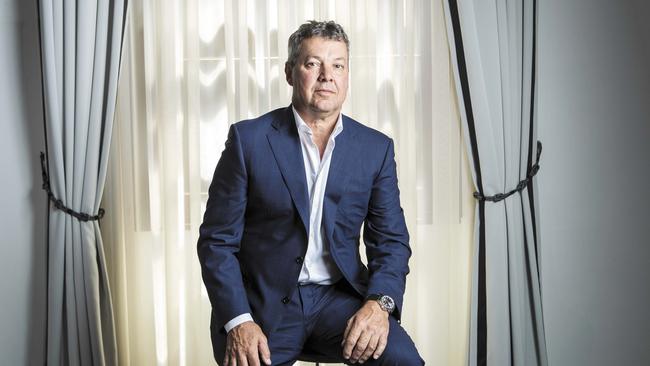
Dow Jones Newswires
8.30am: Atlassian swings to second quarter loss
Atlassian Corp. swung to a loss in the fiscal second quarter as sales surged on higher demand from remote workers moving their work environment to the cloud due to the Covid-19 pandemic.
The team-collaboration and productivity software company swung to a loss of $US621.5 million, or $2.49 a share, for the quarter ended Dec. 31, compared with a profit of $US124.1 million, or 49 cents a share, in the same period a year earlier.
Adjusted earnings were 37 cents a share. Analysts polled by FactSet were expecting an adjusted profit of 32 cents a share.
Revenue rose to $US501.4 from $US408.7 million in the comparable period a year ago. Analysts were looking for $US471.6 million in revenue.
Expenses climbed 30pc from a year ago to $US394.2 million.
Atlassian said it added 11,600 new customers during the quarter to a total of 194,000 customers.
Dow Jones Newswires
8.26am: What’s impressing analysts today?
Beach Energy cut to Hold: Shaw & Partners
BlueScope cut to Neutral: GS
Charter Hall Retail raised to Equal-Weight: MS
Domain Holdings raised to Outperform: CS
Eagers raised to Buy: Bell Potter
Evolution raised to Buy: Jefferies
Flight Centre raised to Buy: Morningstar
IGO cut to Neutral: CS
ImpediMed raised to Buy: Canaccord
Janison Education cut to Hold: Bell Potter
Oil Search cut to Sell: Shaw & Partners
Qantas raised to Buy: Jefferies
Sims cut to Sell: GS
Transurban raised to Buy: Jefferies
Treasury Wine cut to Hold: Morningstar
Evolution Mining raised to Outperform: Macquarie
Ramelius Resources raised to Outperform: Macquarie
Western Areas cut to Neutral: Macquarie
Charter Hall Retail REIT raised to Equalweight: MS
Lachlan Moffet Gray 8.20am: Domino’s hands back JobKeeper
Domino’s Pizza has announced it will return $792,000 in JobKeeper payments received by a subsidiary printing company last financial year.
The pizza franchise chain pledged in October not to receive any more of the wage subsidy, despite remaining eligible.
CEO Don Meij said the move was a message of thanks to the Australian taxpayer.
“We have applied straightforward principles to navigate this pandemic: to put people first (both customers and team-members); to stand side-by-side with our franchisees; to listen to health experts; and to avoid relying on unnecessary government assistance,” he said.
“We appreciate the availability and support of JobKeeper during a period of significant uncertainty. That period has passed, the assistance package has served its purpose, and we return it to Australian taxpayers with our thanks.”
A number of independently owned Domino’s stores received JobKeeper support but the company said this was offset by a $6.8m fund made available to franchisees impacted by the pandemic.
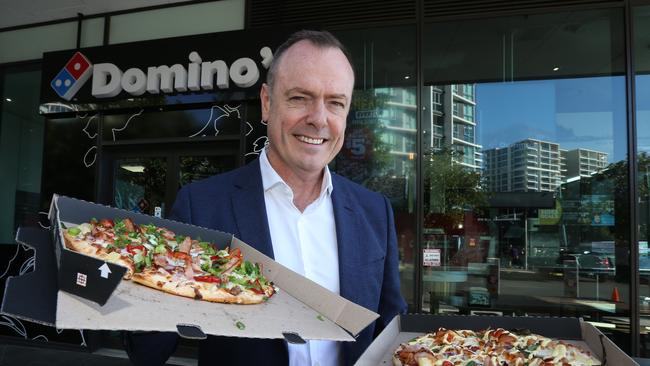
8.05am: ASX set to jump after Wall Street rebound
Australian stocks are set for to jump at the open following a sharp rebound on Wall Street, where the GameStop rally also stalled.
At about 8am (AEDT) the SPI futures index was up 69 points, or 1 per cent.
Yesterday, investors wiped $41bn off the Australian sharemarket as the bull market in the US started to show signs of fatigue.
The Australian dollar was higher at US76.93c.
The price of iron ore is down 5.6 per cent to $US156.20 a tonne.
Brent oil is down 0.5 per cent to $US55.53 a barrel.
8.05am: US stocks rally
US stocks, from health care to technology to financials, rallied Thursday, giving major indexes a boost as the euphoria in some of the most overheated segments of the market showed signs of easing.
All 11 sectors of the S&P 500 traded higher, led by health care, industrial and financial stocks. Some of the gains followed better-than-expected earnings reports from companies such as American Airlines Group, but much of the green that flashed across the stock market was attributed to opportunistic investors willing to pounce on stocks following their biggest pullback since October, analysts said.
The Dow Jones Industrial Average rose 301 points, or 1pc, to 30604 as of the close of trading in New York. The S&P 500 added 1pc. The Nasdaq Composite also traded higher, gaining about 0.5pc. Those gains helped ease losses indexes have suffered throughout the week.
At the same time, the euphoria surrounding stocks like GameStop and AMC Entertainment showed signs of abating. GameStop shares have fluctuated and were recently down nearly 40pc, while AMC stock slumped more than 50pc. The slides coincided with decisions by brokerages like Robinhood Markets and Interactive Brokers Group to restrict the trading of GameStop, AMC and other high-flying stocks.
Trading around those two stocks and others had captured the attention of Wall Street and Main Street alike. At its core, internet day traders pitted themselves against short-selling hedge funds, driving a parabolic rise in stocks like GameStop. Trading appeared to hit a fevered pitch Wednesday, as more shares changed hands that day than any other since mid-2019.
The broader stumble in stocks most of the week followed a strong start to the year that some investors say had pushed share prices beyond levels justified by corporate fundamentals and created pockets of excessive enthusiasm within segments of the stock market, including in GameStop shares.
Analysts are urging investors to look past those one-off situations and focus on earnings, which have been mostly upbeat. Nearly a third of the S&P 500 has reported results so far, and about 81pc have topped analyst’s forecasts, according to FactSet data.
“While the behaviour of some market participants is reminiscent of historical stock market bubbles,” said Mark Haefele, chief investment officer of global wealth management at UBS Group AG, “we don’t believe the market as a whole is in a bubble.”
Mr. Haefele and other analysts continue to make the argument that stocks continue to trade at attractive valuations relative to interest rates and bond yields, which remain subdued. UBS believes the S&P 500 could eventually close at 4000 by the end of the year, about a 5pc gain from current levels.
Meanwhile, investors parsed the latest releases of economic data. Weekly applications for unemployment benefits, tracked as an indicator of the health of the labour market, declined last week but remained elevated at 847,000. Separate figures showed gross-domestic product, a broad gauge of the value of goods and services produced in the economy, grew at a 4pc annual rate in the final quarter of 2020, slightly slower than economists had expected.
This data came after the Federal Reserve maintained its easy money policies Wednesday, saying that business activity has softened with the resurgence of Covid-19 cases.
Stocks traded mostly lower overseas. The pan-continental Stoxx Europe 600 rose 0.1pc. Hong Kong’s Hang Seng dropped 2.6pc, the Shanghai Composite Index fell 1.9pc and Japan’s Nikkei 225 declined 1.5pc.
Dow Jones
7.40am: Macquarie Infrastructure banks $US1.13bn for umbrella fund
Macquarie Infrastructure and Real Assets closed its second umbrella investment fund with $US1.13 billion in commitments, surpassing a $US1 billion target.
The strategy for MIRA Infrastructure Global Solution II LP focuses on investing in the firm’s larger, regional infrastructure funds targeting assets such as toll roads and wireless communications towers in the Americas, Europe and Asia-Pacific. It will also invest in deals alongside those funds.
The firm expects as much as 85pc of the new fund’s capital will be invested in the Americas and Europe, with the remainder spread across the Asia-Pacific region, including Australia and New Zealand, according to a person familiar with the matter. The person said the new umbrella fund isn’t restricted to a particular geographic area.
One such regional fund that the new vehicle can back, Macquarie Infrastructure Partners V LP, had raised nearly $US3.99 billion by last August, according to a regulatory filing, which didn’t list a target amount. Investors in the fund include the Arkansas Teacher Retirement System, which made a $US50 million commitment, according to WSJ Pro data.
A predecessor fund, Macquarie Infrastructure Partners IV LP, closed with $US5 billion, WSJ Pro Private Equity reported in January 2019. The firm in June of that year announced it had raised EUR6 billion for a European infrastructure fund.
The new umbrella fund will have indirect exposure to 35 to 45 portfolio companies once it is fully invested, the person said.
Dow Jones
7.14am: Customers sue Robinhood over GameStop restrictions
A group of individual investors has filed a class action complaint against Robinhood after it restricted users from buying GameStop shares.
The nine-page complaint, filed in the Southern District of New York, alleges that Robinhood “deprived their customers of the ability to use their service” as well as potential gains from trading for “no legitimate reason.”
Robinhood said in a blog post that transactions for certain securities, including eight stock tickers that it listed, were restricted to “position closing only.” Users reported seeing messages that they could close out their positions in some stocks but couldn’t buy more shares of the companies.
The complaint, which asks for a jury trial, requested that Robinhood immediately reinstate GameStop trading on its platform and pay damages to its traders.
Dow Jones Newswires
6.15am: Wall Street bounces back
US stocks, from health care to technology to financials, rallied, giving major indexes a boost as the euphoria in some of the most overheated segments of the market showed signs easing.
All 11 sectors of the S&P 500 rose in recent trading, led by health care stocks and utilities. Some of the gains followed better-than-expected earnings reports from companies such as American Airlines Group, but much of the green that flashed across the stock market was attributed to opportunistic investors willing to pounce on stocks following their biggest pullback since October, analysts said.
In early afternoon trade the Dow Jones Industrial Average rose 515 points to 30819, or 1.8 per cent, while the S&P 500 added 1.9 per cent. The Nasdaq Composite also traded higher, adding nearly 1.6 per cent.
Those gains helped ease losses indexes have suffered throughout the week, with the Dow remaining down just 0.6 per cent over the past four trading days, while the S&P 500 sits on a 0.8 per cent loss.
At the same time, the euphoria surrounding stocks like GameStop and AMC Entertainment showed signs of abating. GameStop shares fluctuated before falling more than 60 per cent, while AMC stock slumped 67 per cent.
Trading around those two stocks and others had captured the attention of Wall Street and Main Street alike. At its core, internet day traders pitted themselves against short-selling hedge funds, driving a parabolic rise in stocks like GameStop. Trading appeared to hit a fevered pitch Wednesday, as more shares changed hands that day than any other since mid-2019.
The stumble in stocks followed a strong start to the year that some investors say had pushed share prices beyond levels justified by corporate fundamentals and created pockets of excessive enthusiasm within segments of the stock market, including in GameStop shares.
Analysts are urging investors to look past those one-off situations and focus on earnings, which have been mostly upbeat. Nearly a third of the S&P 500 has reported results so far, and about 81 per cent have topped analyst’s forecasts, according to FactSet data.
“While the behaviour of some market participants is reminiscent of historical stock market bubbles,” said Mark Haefele, chief investment officer of global wealth management at UBS Group AG, “we don’t believe the market as a whole is in a bubble.”
Quarterly earnings appeared to factor into some of the biggest moves in the stock market on Thursday. Shares of American Airlines jumped 10pc after the airliner reported a narrower loss than what analysts had predicted. Other travel stocks rallied, including United Airlines, up 6.6pc, and Carnival, which added 5.9pc.
Shares of Apple, meanwhile, fell 1.7pc after the iPhone maker reported its most profitable three months on record but didn’t provide specific revenue guidance for the current quarter.
Tesla dropped 3pc after the electric-vehicle maker -- whose shares have soared in recent months -- posted its first full-year profit but missed Wall Street’s expectations.
Dow Jones Newswires
6.10am: Naked Brand sells $US50m in fresh shares
A few months ago lingerie maker Naked Brand Group Ltd. was in danger of being delisted by the Nasdaq Stock Market. Today, the company, which owns Frederick’s of Hollywood and other lingerie brands, is one of the most actively traded stocks.
The Australian company used a sudden spike this week to issue 29 million shares on Thursday, raising about $US50 million in proceeds. The shares were sold at $1.70 apiece in a “registered direct offering priced at-the-market under Nasdaq rules,” the company said. Representatives of the company didn’t immediately respond to requests for comment.
Shares of Naked Brand were trading below 50 cents for months before taking off this week after some Reddit users began discussing the stock. On Thursday afternoon, the shares were around $1.70 after briefly eclipsing $3 earlier in the session. The Robinhood app restricted trading in the shares, among other stocks.
Last year, Nasdaq warned the small-cap company it was at risk of being delisted for trading below $1 for an extended period. In November, Naked Brand said it had received an extension until May 24 to get its share price above the $1 for 10 consecutive days.
Dow Jones Newswires
6.06am: Online brokerages restrict trading on GameStop, AMC
Popular online brokerages including Robinhood Markets Inc., Interactive Brokers Group Inc., and Webull Financial LLC restricted access to trading high-flying stocks including GameStop Corp. and AMC Entertainment Holdings Inc, drawing sharp rebuke from individual investors hoping to participate in this week’s mammoth market gains.
All three brokerages said Thursday that they were restricting trading for specific securities. Robinhood said in a blog post that transactions for certain securities, including eight stock-tickers that it listed, were restricted to “position closing only.”
Users reported seeing messages that they could close out their positions in some stocks but couldn’t buy more shares of the companies.
The list from Robinhood included GameStop, AMC, BlackBerry Ltd., Bed Bath & Beyond Inc., Express Inc. and Nokia Corp. Headphone-maker Koss Corp. and Naked Brand Group Ltd., an apparel company, were also included on the list.
Interactive Brokers also tweeted Thursday that options trading for companies including AMC, BlackBerry, Express, GameStop and Koss, would be limited to liquidations, or closing out positions. The brokerage cited “extraordinary volatility in the markets.”
Online brokerages have been under immense pressure in recent days, as individual investors have flocked to the platforms to execute trades to capitalise on this week’s eye-popping gains in the market. GameStop finished up 135% Wednesday to close at a record $347.51, while AMC closed up 301% at $19.90. Both stocks recorded their largest percentage increases on record.
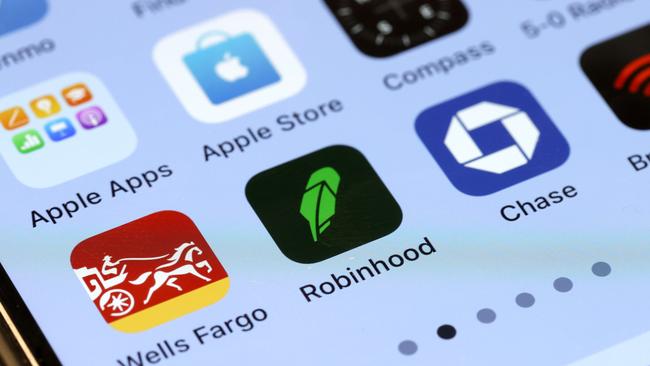
Dow Jones
6.05am: Palantir in licence deal with Rio Tinto
Palantir Technologies said it has signed a “significant” multiyear agreement to license its Foundry analytics platform to mining giant Rio Tinto.
Palantir said Rio Tinto will “integrate raw data from a multitude of disparate sources into a representation of critical mining operations.”
Rio Tinto said in a statement that the agreement “is an important step in our digital transformation; enabling fast-paced, forward-looking decision making across our operations leading to improved results in safety, cost and production.” Palantir notes that Rio Tinto has petabytes of data from sensors, exploration operations, and trucks.
Palantir said the deal builds on a number of previous data-integration projects across Rio Tinto’s business units, including connecting people with data in Rio Tinto’s underground mining operations and assisting the company with employee safety during the COVID-19 pandemic.
Palantir did not disclose the specific size of the contract, but said in a statement that the deal is “a significant industry partnership for us.”
Dow Jones
6.00am: Global markets rebound
European and US stocks rebounded following sharp falls the previous day thanks to encouraging data, while unusual lurches in a handful of stocks continued.
“Stocks have largely recouped earlier losses as the fear that previously ran through the markets has dissipated,” said market analyst David Madden at CMC Markets UK.
Both Frankfurt and Paris ended the day in positive territory, while London finished in the red as the pound rose against the dollar.
Wall Street stocks were sharply higher in late morning trading, with the Dow up 1.8 per cent.
“This morning the mood was fearful due to concerns that some hedge funds were frantically closing out positions in a bid to free up cash to meet margin calls requirements on short positions that have gone horribly wrong for them,” he added.
Markets had been unnerved by huge swings in certain stocks amid a David versus Goliath battle by investors over struggling video game retailer GameStop.
The US group saw its stock surge about 1,000 per cent in two weeks after a group of amateur investors active on online forum Reddit banded together to fight the Wall Street funds that had previously bet on its price going lower.
But GameStop shares were down more than 40 per cent in late morning trading in New York, as were the shares in several other firms which had also seen jumps in recent days.
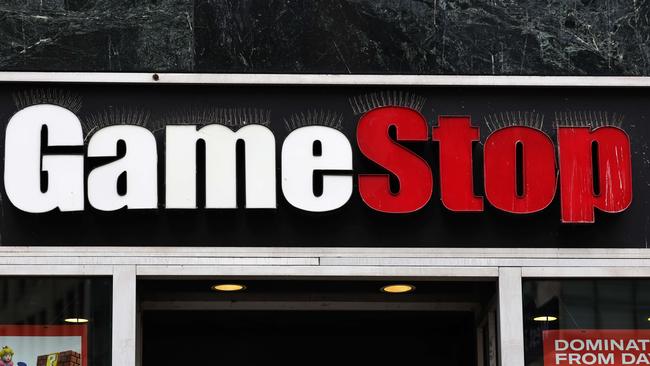
Craig Erlam at Oanda pointed to a drop in new claims for US unemployment benefits to 847,000 last week as lifting sentiment.
Meanwhile data showed that the US economy contracted by 3.5 per cent overall last year, the worst performance since 1946.
“US growth data proves the need for another bout of stimulus,” said Josh Mahony at IG.
US stock prices have surged in recent months to hit records as monetary and fiscal stimulus have kept markets awash in cash.
The US quarter-on-quarter growth rate slowed to 1.0 per cent in the final three months of the year, following a record 7.5 per cent rebound in the third quarter.
Asian equities extended losses after Wall Street shed more than two per cent overnight, following a gloomy Federal Reserve warning over the virus-plagued US economy.
AFP
5.58am: Commerzbank to cut 10,000 jobs
Germany’s second-largest lender Commerzbank said it will cut 10,000 jobs and close 340 branches by 2024 as it grapples with a switch to online banking and cashless payment options.
The cuts will affect one in three jobs in Germany, the Frankfurt-based lender said in a statement.
“As part of a wide-ranging digitalisation, the bank will substantially reduce its branch network from the current level of 790 to 450,” it added.
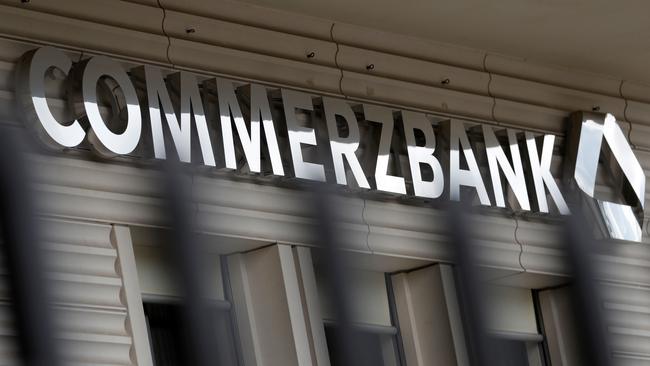
AFP
5.55am: New US jobless benefit claims fall
New applications for US unemployment benefits fell more than expected last week as President Joe Biden took office, but remain distressingly high months after the COVID-19 pandemic began, according to government data released Thursday.
The Labor Department reported 847,000 new claims for jobless benefits filed in the week ended January 23, seasonally adjusted, slightly less than analysts expected, and a decline from the 914,000 filings in the previous week.
Another 426,856 claims, without seasonal adjustment, were reported under a program passed during the pandemic to aid workers not normally eligible for benefits, according to the report.
The data also showed a jump in the number of people receiving benefits for the long-term unemployed.
New benefit claims have fluctuated in recent weeks and it remains to be seen if this report will mark a sustained decline, but 10 months into the pandemic, new applications each week have yet to drop below the worst single week seen in the 2008-2010 global financial crisis.
AFP
5.52am: US economy contracts 3.5pc
The United States -- the world’s largest economy -- shrunk by 3.5 per cent last year as the COVID-19 pandemic shut down large sectors of business and daily life, according to government data.
It was the biggest contraction of the world’s largest economy since 1946, the Commerce Department said.
The contraction reflected the drop in spending as well as in “exports, private inventory investment, non-residential fixed investment, and state and local government that were partly offset by increases in federal government spending and residential fixed investment,” the report said.
Net exports fell 13 per cent last year while personal consumption expenditures dropped 3.9 per cent.
For the fourth quarter alone, GDP rebounded by an annual rate of 4.0 per cent, the Commerce Department reported in its first estimate for the final three months of the year.
Compared to the July-September period, the measure used in most other countries, fourth quarter growth was just 1.0 per cent, the report said.
AFP
5.50am: More Aramco shares to be sold
Saudi Crown Prince Mohammed bin Salman said the kingdom will sell more shares of energy giant Aramco in the coming years, following the world’s biggest public listing in 2019.
“There will be Aramco share offerings in the coming years, and this cash will be transferred to... the Public Investment Fund to be reinjected inside and outside the kingdom,” Prince Mohammed told Riyadh’s Future Investment Initiative (FII) conference in a virtual session.
The prince did not specify a time frame or what portion of the company’s shares will be sold in future offerings.
Aramco was listed on the Saudi bourse in December 2019 following the world’s biggest initial public offering, generating $US29.4 billion for 1.7 per cent of its shares.

AFP
5.50am: American Airlines reports $US8.9bn loss
American Airlines reported an $US8.9 billion loss for 2020 due to the coronavirus, but said it expects a rebound to begin later in 2021.
The big US carrier reported a fourth quarter loss of $US2.2 billion, compared with profits of $US414 million in the year-ago period following another big drop in travel demand.
American’s red-ink report comes on the heels of earlier releases from rivals Delta Airlines and United Airlines that show an industry in turmoil after restrictions to contain COVID-19 were enacted across the globe, shutting down or sharply reducing travel.
AFP
5.45am: Gold demand shrinks in 2020
Gold demand shrank 14 per cent last year as the coronavirus pandemic sparked record falls in jewellery purchases and as strong investor interest sent prices to all-time highs, industry data showed.
Overall demand for the precious metal hit the lowest level since the global financial crisis in 2009, at 3,759.6 tonnes, the World Gold Council (WGC) said in its annual report.
At the same time, gold prices hit record highs above $2,000 an ounce, with the commodity benefiting from its status as a haven investment in times of economic uncertainty.
“Jewellery demand in 2020 dropped to its lowest annual level on record, decimated by the combination of the global pandemic -- with its resultant market lockdowns -- and record high gold prices at a time of economic slowdown,” the WGC said.
Demand for gold jewellery slumped 34 per cent to a record-low 1,411.6 tonnes from 2019.
“In a tumultuous year for the gold market, investment was one of the notable positives,” the report added.
Total annual gold investment hit a record 1,773.2 tonnes, 40 per cent higher than in 2019, thanks to the popularity of exchange-traded funds, which allow investment outside of futures market.

AFP
5.40am: Norway wealth fund posts 100bn euros gain
Norway’s sovereign wealth fund, the world’s biggest, racked up gains of more than 100 billion euros in 2020 despite market turbulence caused by the coronavirus pandemic, the central bank said.
The fund registered a return of 10.9 per cent last year, or 1.07 trillion kroner (101.5 billion euros) -- its second biggest gain ever -- boosted mainly by tech stocks.
At the end of December, the fund was worth the astronomical sum of 10.9 trillion kroner (1.03 trillion euros).
“Despite the pandemic having put its mark on 2020, it has been yet another good year for the fund,” central bank governor Oystein Olsen said in a statement. “However, the high return also reminds us that the market value of the fund might vary a lot going forward,” he added.
The fund, which is aimed at financing the future needs of Norway’s generous welfare state and in which the state places its oil revenues, registered a 12.1 per cent gain on its stock investments, which represented 72.8 per cent of its portfolio.
The gains were made almost exclusively in the fourth quarter, amid “positive news on vaccine” developments in the fight against COVID-19, the fund’s deputy CEO Trond Grande told reporters.
Invested in more than 9,200 companies, the fund controls about 1.5 per cent of the world’s market capitalisation.
AFP
5.37am: Eurozone banks face loans risk from virus: ECB
The eurozone’s big banks have successfully weathered the coronavirus crisis so far but could now be exposed to major losses on their loan portfolios, the European Central Bank said.
The ECB said that “deteriorating economic conditions” due to the coronavirus outbreak “slowed the pace of the ongoing reduction in non-performing loans”.
In addition, there was “also an embedded level of distress in loan books that is not yet fully evident”.
Combined with “the phasing-out of several support measures in 2021”, this exposure increases the “risk of cliff effects” and the ECB advised banks to follow guidance on precautionary steps.
AFP
5.35am: Cathay Pacific shares plunge after bond sale
Shares in Hong Kong’s marquee carrier Cathay Pacific plunged after the struggling airline unveiled a HK$6.7 billion (US$870 million) bond sale to try to stem its rampant cash burn.
The firm’s stock tumbled 9.7 per cent as the market closed in Hong Kong, days after it warned new quarantine measures planned for passenger and cargo crew arriving in Hong Kong would further dent its finances.
Cathay Pacific on Thursday said it would offer five-year bonds maturing in February 2026 that could also be converted into shares at a 30 per cent premium above the previous day’s close.
Like all major airlines, Cathay Pacific has seen its business evaporate during the coronavirus pandemic but the Hong Kong carrier is especially vulnerable because it has no domestic market to fall back on.
AFP
5.30am: Toyota overtakes VW as top-selling global automaker
Japan’s Toyota reclaimed the title of world’s top-selling automaker in 2020, according to data released by the firm on Thursday, pushing Volkswagen into second place for the first time in five years.
Toyota said it had sold 9.53 million vehicles around the world last year, overtaking the 9.3 million sales made by its German rival.
The Japanese giant took the lead despite a decline in global sales of more than 10 per cent as the auto industry suffered the effects of the coronavirus pandemic.
“Despite the COVID-19 pandemic... Toyota was able to continue corporate activities through comprehensive implementation of various infection prevention measures, and by working together with partners including suppliers and dealers,” it said in a statement.
That was still better than the more than 15 per cent drop in sales Volkswagen announced earlier this month.
Toyota said it had benefited from a jump in sales in China, which were up over 10 per cent year-on-year, and a better-than-expected performance globally in the October-December quarter.
The last time Toyota held the top spot was in 2015, with VW edging it out in the following years.

AFP





To join the conversation, please log in. Don't have an account? Register
Join the conversation, you are commenting as Logout